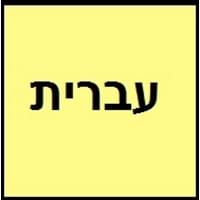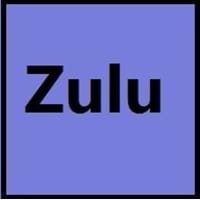Hebrew and Zulu
Countries
Israel
South Africa
National Language
Israel
South Africa
Second Language
Israel
Botswana, Lesotho, Malawi, Mozambique, Swaziland, Zimbabwe
Speaking Continents
Africa, Asia, Europe
Africa
Minority Language
Poland
Not spoken in any of the countries
Regulated By
Academy of the Hebrew Language
Pan South African Language Board
Interesting Facts
- The original language of Bible is Hebrew.
- The men and women use different verbs in hebrew language.
- The meaning of word "Zulu" means "Sky"and Zulu was the name of the ancestor who founded the Zulu royal line in about 1670.
- Zulu language has many loanwords borrowed from Afrikaans and English Languages.
Similar To
Arabic and Aramaic languages
Xhosa Language
Derived From
Aramaic Language
Not Available
Alphabets in
Hebrew-Alphabets.jpg#200
Zulu-Alphabets.jpg#200
Writing Direction
Right-To-Left, Horizontal
Not Available
Hello
שלום (Shalom)
Sawubona
Thank You
תודה (Toda)
Ngiyabonga
How Are You?
מה שלומך? (ma shlomxa)
unjani
Good Night
לילה טוב (Laila tov)
okuhle ebusuku
Good Evening
ערב טוב (Erev tov)
okuhle kusihlwa
Good Afternoon
אחר צהריים טובים (Achar tzahara'im tovim)
okuhle ntambama
Good Morning
בוקר טוב (Boker tov)
okuhle ekuseni
Please
בבקשה (bevekshah)
Ngiyacela
Sorry
סליחה! (Slicha)
Ngiyaxolisa
Bye
להתראות (Lehitraot)
bye
I Love You
אני אוהבת אותך (Ani ohevet otcha)
Ngiyakuthanda wena
Dialect 1
Ashkenazi Hebrew
Qwabe
Where They Speak
Israel
Gabon, South Africa
Dialect 2
Samaritan Hebrew
central KwaZulu-Natal Zulu
Where They Speak
Israel, Palestine
Georgia, South Africa
Dialect 3
Yemenite Hebrew
Ndebele
Where They Speak
Israel
Zimbabwe
Speaking Population
Not Available
Native Name
עברית / עִבְרִית (ivrit)
isiZulu
Alternative Names
Israeli, Ivrit
Isizulu, Zunda
French Name
hébreu
zoulou
German Name
Hebräisch
Zulu-Sprache
Pronunciation
[(ʔ)ivˈʁit] - [(ʔ)ivˈɾit]
Not Available
Ethnicity
Not Available
Zulu people
Language Family
Afro-Asiatic Family
Niger-Congo Family
Subgroup
Semitic
Benue-Congo
Early Forms
Biblical Hebrew, Mishnaic Hebrew, Medieval Hebrew, Hebrew
urban Zulu
Standard Forms
Modern Hebrew
Deep Zulu
Signed Forms
Signed Hebrew
Not Available
Scope
Individual
Individual
ISO 639 6
Not Available
Not Available
Glottocode
hebr1246
zulu1248
Linguasphere
12-AAB-a
99-AUT-fg
Language Type
Living
Living
Language Linguistic Typology
Subject-Verb-Object, Verb-Subject-Object
Subject-Verb-Object
Language Morphological Typology
Fusional, Synthetic
Not Available
All Hebrew and Zulu Dialects
Most languages have dialects where each dialect differ from other dialect with respect to grammar and vocabulary. Here you will get to know all Hebrew and Zulu dialects. Various dialects of Hebrew and Zulu language differ in their pronunciations and words. Dialects of Hebrew are spoken in different Hebrew Speaking Countries whereas Zulu Dialects are spoken in different Zulu speaking countries. Also the number of people speaking Hebrew vs Zulu Dialects varies from few thousands to many millions. Some of the Hebrew dialects include: Ashkenazi Hebrew, Samaritan Hebrew. Zulu dialects include: Qwabe , central KwaZulu-Natal Zulu. Also learn about dialects in South American Languages and North American Languages.
Hebrew and Zulu Speaking population
Hebrew and Zulu speaking population is one of the factors based on which Hebrew and Zulu languages can be compared. The total count of Hebrew and Zulu Speaking population in percentage is also given. The percentage of people speaking Hebrew language is Not Available whereas the percentage of people speaking Zulu language is 0.16 %. When we compare the speaking population of any two languages we get to know which of two languages is more popular. Find more details about how many people speak Hebrew and Zulu on Hebrew vs Zulu where you will get native speakers, speaking population in percentage and native names.
Hebrew and Zulu Language Codes
Hebrew and Zulu language codes are used in those applications where using language names are tedious. Hebrew and Zulu Language Codes include all the international language codes, glottocodes and linguasphere.





